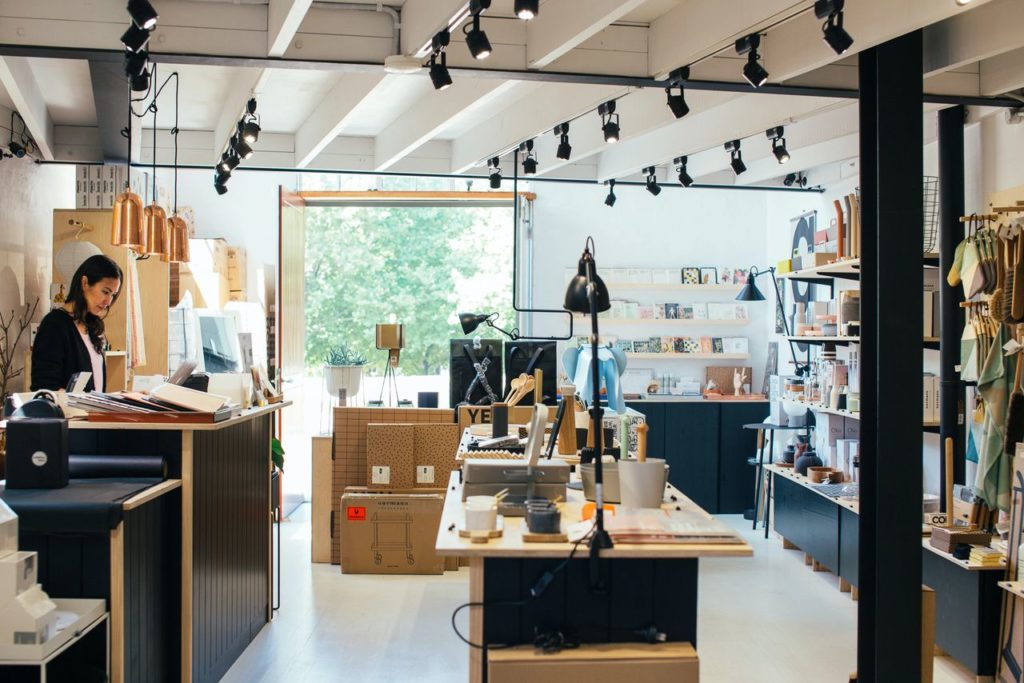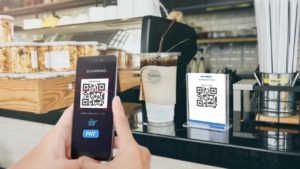Business as usual has changed dramatically throughout the COVID-19 pandemic. Almost overnight, companies worldwide had to develop new strategies to manage daily operations while keeping their staff and customers healthy and safe.
The hero of this historic moment? Technology.
The COVID-19 crisis has sparked a quantum leap in the adoption of new technologies. By some estimates, the share of digital or digitally-enabled products in business portfolios has accelerated by as much as seven years. And it’s more than a temporary fix; most businesses report they expect these changes to be long-lasting.
If you’re a small business owner, chances are your website or digital retail store has been indispensable throughout the pandemic. But if your online presence is limited to these platforms, you’re missing countless other opportunities to connect with customers and drive sales.
Market dynamics aren’t just moving towards virtual – they’ve moved. And retail businesses that leverage the digital transformation are poised for success.
What is the Digital Transformation in Retail?
Digital transformation refers to changes caused by the large-scale adoption of new technology within a market or industry. In the retail sector, this plays out in two key ways: digital marketing strategy; and business day-to-day.
1. Digital Marketing Strategy
The digital transformation in retail has dramatically reshaped the relationship between brand and consumer. Innovative new technology is changing the way small businesses:
- Reach New Customers: Digital marketing tools use consumer behavior analytics to reveal untapped opportunities for growth. These insights help businesses create data-driven strategies and sales funnels that attract new customers and boost brand awareness.
- Improve Customer Experience: 73% of consumers say a good experience is a key part of what makes them loyal to a brand. Custom apps, automated processes, virtual promotions, and mobile optimization improve your customers’ experience and keep them coming back.
- Building Brand Identity: Consumers interact with brands an average of seven times before they make a purchase. Digital marketing tools help businesses reach customers outside of their physical store, delivering targeted messaging and a consistent brand experience at every touchpoint.
2. Business Day-to-Day
Digital transformation trends in retail can help small businesses work smarter day-to-day. Retailers can leverage virtual tools to:
- Optimize, Organize, and Streamline: From platforms that help remote teams collaborate in real-time, digital systems for tracking physical inventory, or chatbots that streamline customer service – you name it, there’s a virtual tool to make it more efficient.
- Manage and Evaluate Finances: Digital sales tracking tools reveal trends and opportunities, virtual bookkeeping does the math, and financial management software gives businesses more power over their bottom line.
- Offer New and Improved Services: There are countless ways to tap technology to develop memorable services. Contactless shopping and delivery, all-in-one mobile apps, and virtual reality (VR)-powered experiences are just a few.
Small Businesses & the Digital Transformation in Retail
The retail sector is in the midst of a major transformation – but is it relevant to your small business? All signs to point to yes.
In fact, research shows team members at companies with less than a hundred employees are nearly three times more likely than those at companies with 50,000+ to say their workplace’s digital transformation was a success.
And consider this: 87% of companies think digital technology will disrupt their industry, but less than half are prepared for that disruption. For businesses of any size, embracing new technology today means a head start on tomorrow’s competition.
Here’s what the benefits look like for small businesses:
- Improved Efficiency and Productivity: Tools like AI chatbots, digital recordkeeping, and virtual project management streamline processes while boosting morale and productivity on small teams.
- Reduce Operational Costs: Automating mundane tasks and centralizing software reduces the resources, time, and paperwork it takes to run your business. This frees up more of your budget for innovative big ideas.
- Attract Mobile Customers: 65% of consumers research a product online before shopping in-store. But poorly-optimized websites work against you. 40% of consumers say they’ll check out the competition if they have trouble accessing a company’s mobile site.
- Improve Customer Experience: By embracing digital tools and focusing on customer experience, brands can boost customer satisfaction by 20-30%. Happy customers are loyal customers, which is why this approach nets economic gains of 20 – 50%.
- Boost Profits: Research shows “digitally mature” companies significantly outperform their less mature peers. That’s because 67% of consumers will pay more for a great experience – and digital retail tools help you deliver.
Getting Started: Retail Digital Marketing Best Practices
1. Better Understand Your Customer: Leverage Digital Data
Use digital retail tools to track customer data, analyze marketing performance, and reach the right consumers with the right messaging.
Platforms like Mailchimp and HubSpot help small businesses maximize marketing efforts by comparing their performance against industry averages, analyzing customer interaction, and suggesting ways to improve the results of future campaigns.
Digital receipt apps like e.pop use item-level transactional data to help you better understand your customer’s buying journey and spending habits outside of your retail store, including how your customers interact with your competitors. Retailers can use this data to create targeted, unintrusive ads within the e.pop app, while tracking ad-click to in-store purchase to understand which campaigns were most impactful.
2. Better Reach Your Customer: Omni-Channel Marketing
Studies show 73% of shoppers interact with brands on more than one channel before they buy a product. They may see an ad for a product, visit the brand’s Instagram page, look up product reviews on the company website, and even subscribe to an email newsletter for months before making their purchase.
Omni-channel marketing creates an integrated, collaborative brand experience over multiple online channels. This allows consumers to engage with companies on their own terms while enjoying a consistent, positive brand experience at each touchpoint.
And it works: marketing campaigns deployed on three or more channels produce purchase returns 297% higher than single-channel campaigns.
Create a unified experience for on-the-go consumers with Google Shopping ads, Facebook Marketplace promotions, targeted email campaigns, automated SMS outreach, and exclusive offers on the e.pop app.
3. Better Serve Your Customer: Hyper-Personalization
There are countless technologies tracking our behavior as we move through the online world. You’ve seen this data in action when you click on a sponsored Facebook post and see an ad for the featured product next time you visit Google. Or, perhaps, you’ve received an automated email or SMS reminder to return to an item you’ve abandoned in your shopping cart.
Hyper personalization is a digital marketing strategy that uses analytics to customize customer touch-points. This creates a personalized, relevant experience that nudges consumers along their buying journey.
You may: develop an online survey to generate personalized product bundles; use a digital retail store plug-in to recommend related products; or automate email series triggered by specific actions. Or, you can use e.pop to target in-app marketing campaigns by location, shopping habits, and engagement with your competitors.
The digital transformation in retail is simple: deep data points help you understand what your customers want, and intelligent systems help you deliver.
Use e.pop to Make the Most of the Digital Transformation in Retail
Are you fully leveraging your transactional touchpoints with shoppers? Take full advantage of the digital transformation with the help of e.pop.
Learn more on the e.pop merchant page, and sign up today to get your first year free.

Marley Flueger
Freelance sustainability writer working to demystify the climate crisis, connect people with tools for lighter living, and create pathways for us all to push the needle towards a fossil fuel-free and equitable future.




thanks nice